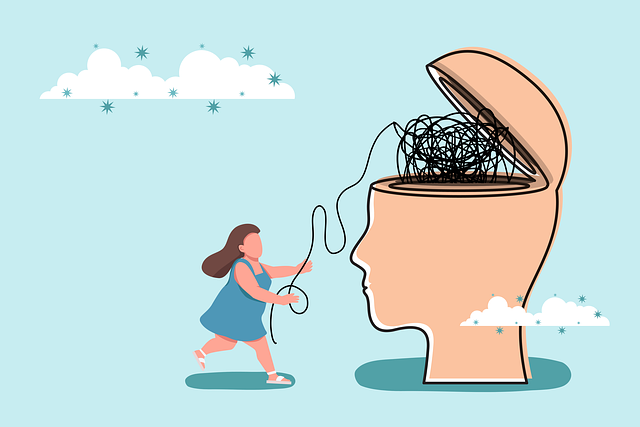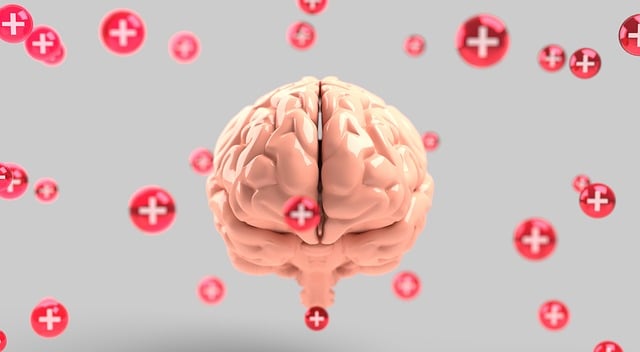Cultural competency in healthcare, as highlighted by Englewood International Adoptions Therapy, goes beyond language translation, encompassing understanding and respecting global cultural diversity. In a globalized world, this is crucial for delivering sensitive care to patients from varied ethnic backgrounds, religions, and socioeconomic statuses. Englewood's specialized programs, focusing on therapy, education, and self-care, equip professionals with skills like cross-cultural communication, bias awareness, and empathy cultivation through workshops, case studies, role-playing, and mindfulness practices. Their success lies in strategic planning, leadership commitment, continuous evaluation, and integrating these initiatives into existing professional development for long-term positive outcomes, as seen through improved patient care, staff empathy, community outreach, and mental health awareness.
“Cultural competency in healthcare is a vital global initiative, ensuring quality patient care and outcomes across diverse cultural backgrounds. This article explores this critical aspect through several lenses. We begin with a worldwide perspective on cultural competency, delving into its significance in healthcare delivery. Subsequently, we highlight the role of Englewood International Adoptions Therapy as a pioneering training program. Key components, implementation strategies, and measurement techniques for effective cultural competency programs are also covered, emphasizing best practices. Finally, we discuss how organizations can foster continuous improvement.”
- Understanding Cultural Competency in Healthcare: A Global Perspective
- The Role of Englewood International Adoptions Therapy in Training
- Key Components of Effective Cultural Competency Programs
- Implementation Strategies for Healthcare Organizations
- Measuring Success and Continuous Improvement in Cultural Competency Training
Understanding Cultural Competency in Healthcare: A Global Perspective

Cultural competency is a critical aspect of healthcare that goes beyond language translation. It involves understanding and appreciating the diverse cultural beliefs, values, and practices of patients and communities worldwide. In today’s globalized world, healthcare providers interact with individuals from various ethnic backgrounds, religions, and socioeconomic statuses. This diversity presents unique challenges and opportunities for delivering culturally sensitive care. For instance, what is considered normal behavior or communication in one culture might differ significantly in another.
Englewood International Adoptions Therapy, a pioneering organization in cultural competency training, emphasizes the importance of this global perspective. Their programs focus on helping healthcare professionals navigate these cultural nuances, ensuring that every patient receives respect and care tailored to their unique background. This approach is especially relevant when addressing mental wellness issues, as cultural factors can greatly influence how individuals perceive and express emotional distress. The organization’s Community Outreach Program Implementation and Mental Wellness Journaling Exercise Guidance are excellent tools to foster a deeper understanding of these cultural dynamics, ultimately improving patient outcomes and building stronger communities.
The Role of Englewood International Adoptions Therapy in Training

Englewood International Adoptions Therapy plays a pivotal role in enhancing cultural competency among healthcare providers. Founded with a vision to support individuals and families navigating adoption and fostering, the therapy centre offers specialized programs that cater to the unique needs of this diverse population. Through their comprehensive approach, Englewood provides not just treatment but also education, ensuring healthcare professionals are equipped to deliver culturally sensitive care.
The Mental Wellness Journaling Exercise Guidance and Self-Care Practices taught at Englewood International Adoptions Therapy empower both therapists and clients. By integrating Resilience Building techniques, the therapy centre fosters an environment where individuals can explore their identities, process complex emotions, and develop coping strategies that promote overall well-being. This holistic approach extends beyond individual growth, contributing to more effective and compassionate healthcare delivery within diverse cultural contexts.
Key Components of Effective Cultural Competency Programs

Effective cultural competency programs in healthcare are multifaceted and designed to foster a deep understanding of diverse cultural backgrounds, beliefs, and practices. At Englewood International Adoptions Therapy, we’ve identified key components that underpin successful initiatives. Firstly, Social Skills Training equips professionals with the ability to communicate sensitively and effectively across different cultures, breaking down barriers and fostering trust. This involves learning non-verbal cues, understanding cultural nuances in language use, and practicing empathy.
Additionally, incorporating Mind Over Matter Principles and Mindfulness Meditation into training curricula empowers providers to manage their own biases and stress responses. By cultivating present-moment awareness and emotional regulation, healthcare workers can create safer, more inclusive spaces for patients from various cultural backgrounds. These practices promote a sense of calm and clarity, enabling professionals to respond thoughtfully and compassionately in challenging situations.
Implementation Strategies for Healthcare Organizations

Implementing cultural competency training within healthcare organizations is a multifaceted process that requires strategic planning and commitment from leadership. One effective approach is to integrate these initiatives into existing professional development programs, ensuring that new hires and existing staff alike are exposed to essential training from the onset. Healthcare providers can benefit from tailored workshops and seminars focusing on topics like cross-cultural communication, bias awareness, and empathy cultivation—all core components of cultural competency. For instance, Englewood International Adoptions Therapy has successfully implemented Compassion Cultivation Practices, fostering a more empathetic environment among healthcare professionals.
Additionally, creating dedicated learning spaces where staff can explore different cultural perspectives through case studies, role-playing exercises, and interactive discussions enhances understanding. Encouraging open dialogue and debriefing sessions after training allows for the processing of new information and fosters a safe space for sharing experiences. By incorporating Emotional Well-being Promotion Techniques and Burnout Prevention strategies alongside cultural competency training, healthcare organizations can create a resilient and supportive work environment, ultimately improving patient outcomes and staff satisfaction.
Measuring Success and Continuous Improvement in Cultural Competency Training

Measuring success and driving continuous improvement are essential components of any effective cultural competency training program, such as those provided by Englewood International Adoptions Therapy. To ensure long-term positive outcomes, it’s crucial to implement robust evaluation methods that go beyond mere satisfaction surveys. A comprehensive approach involves assessing knowledge retention, behavioral changes, and the impact on patient care within diverse communities.
Regular feedback from participants through focus groups or interviews can provide valuable insights into the practical application of learned skills. Additionally, measuring the success of cultural competency training should include evaluating its contribution to broader initiatives like community outreach programs (e.g., those implemented by Englewood) and promoting mental health awareness. By integrating these evaluation strategies, mental health professionals can enhance their risk assessment capabilities and deliver more culturally sensitive care tailored to diverse populations.
Cultural competency training, as highlighted by programs like Englewood International Adoptions Therapy, is no longer an option but a necessity in healthcare. By understanding global perspectives and implementing effective key components, organizations can create inclusive environments that cater to diverse patient populations. Measuring success through continuous improvement ensures healthcare providers are equipped to deliver optimal care, fostering better outcomes and stronger communities. This holistic approach not only enhances patient satisfaction but also positions healthcare organizations as leaders in cultural competency, ultimately revolutionizing the way care is delivered worldwide.














